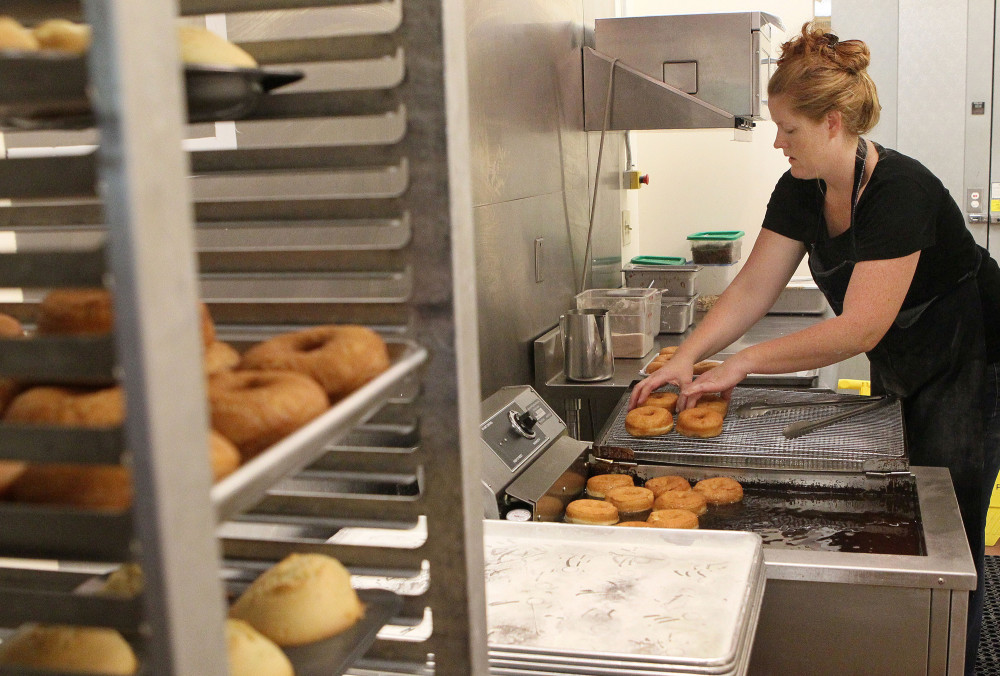By Jonathan Takiff
Philly.com
WWR Article Summary (tl;dr) Not all crowdfunding platforms are created equal. As Columnist Jonathan Takiff points out, Kickstarter is a much more rigorous platform: It blesses only projects that land on the examining table with a semi-working prototype. In addition, it will shut down a venture and return investors’ funds if the company fails to meet the stated funding goal or is found to have doctored test results.
Philly.com
Crowdfunding has been hailed as a triumph for startups — a way for bright inventors to skip the corporate system with help from interested individuals.
That would be us — kind souls who sense a breakthrough and want to support it. And we can, with a pledge at one of the big product crowdfunding sites, Kickstarter and Indiegogo.
To avoid roadblocks from the U.S. Securities and Exchange Commission, individual funders are not offered shares for our small contribution. Instead, we’re characterized as donors and promised an eventual reward of the item in development, for maybe half or three-fourths of its retail cost.
Sounds like a deal, right? But look up “crowdfunding” in news stories and you’ll discover it’s often synonymous with “naivete.” Or “disappointment.”
Take that quirky 84-mpg Elio P4 wonder car that got a lot of buzz going in 2014, vying for trade show attention with Tesla. This three-wheeled hype machine scored $17 million (and 65,000 reservations to buy) in its crowdfunding round, and even announced a deal with the formerly Philly-based Pep Boys chain to service the putt-putts. But three years later, would-be drivers have yet to start a single Elio. And the company has reportedly been selling off its production equipment to keep the lights on. Not a good sign.
Another notorious no-show is the U.S.-spawned Saygus V Squared smartphone that won reviewer raves in 2015 based on an ambitious list of features and a sleek product mockup. But since then, almost all of Saygus’ promised innovations — from a borderless screen to “industry first” optical image stabilization on rear and front cameras — have been delivered in other name brand phones already on sale. The now-being-tested Saygus phone is still in the “coming soon” realm, swears Salt Lake City-based developer Chad Sayers. “People forget it took Apple eight years to develop the iPhone,” he noted. Yeah, but Steve Jobs didn’t accept more than $1 million in crowd-sourced orders, then blame long-delayed refunds on “poor customer support.”
A warning bell should go off if an entrepreneur says that “we started out with Kickstarter but decided to move our project to Indiegogo because they’re more accommodating.”
Kickstarter is the more rigorous: It blesses only projects that land on the examining table with a semi-working prototype. It will shut down a venture and return investors’ funds if the company fails to meet the stated funding goal or is found to have doctored test results — as happened with the $4 million-crowdfund-raising Skarp Laser Razor, which claimed to “remove hair with light.”
At Indiegogo, it’s possible to get the party started with nothing more than a good idea. You cash in some donations even if you don’t meet your stated goal, and you can raise money internationally, said Sayers. “We found backers in 50 countries.”
Because they’re hungry, product developers often promise more (for less) than they can profitably deliver. That’s what’s been holding back the delivery of the Coolest Cooler (with onboard electric blender!) to 20,000 of the 60,000 backers who ordered one back in 2014.
Early supporters were offered a unit for as little as $165, but each wound up costing $215 to make, admitted CEO Ryan Grepper.
Pressed by authorities in Oregon, he’s now committed to filling the remainder of early orders over the next three years. And that’s presuming the company can generate $3 million to $4 million in profit for Coolers sold online for $399.99 a pop.
Local projects going the crowdfunding route have also suffered production snags. Take the Drexel University-born earphone maker Eaos. Even with help from the Horsham branch of Arrow Electronics — a new ventures advocate that is expert in component sourcing and manufacturing partnerships — Eaos will miss the promised December release of its motorcyclist-focused SlimBuds Wireless earbuds. Eaos is now tweaking the buds’ chin-strap microphone, it apologetically posted last week.
Athena, a nicely styled, wearable wireless personal safety device, has been raising venture capital money (DreamIt Ventures, Ben Franklin Technology Partners) since 2014, and crowdfunding largely for promotional value since October 2015. While the device was supposed to “ship” a year ago, “we finally got all the pre-orders out this summer” confirmed Anthony Gold, co-founder (with Yasmine Mustafa) of the alert-sending product and its parent Roar for Good. A tech vet (long developing products at Unisys), Gold admits “we were overwhelmed by the orders we got on Indiegogo,” then had to “switch to a larger-capacity manufacturer — Flextronics — which worked out really well. They’re the leading maker of wearable tech.”
Later, beta testers persuaded the team to reshape this $129 “I’m-in-trouble” message sender for a “wider audience than we anticipated” — to serve the needs of kids and seniors as well as women. They’ve since tweaked the battery, its magnetic clasp, local alarms, and software.
“I’ve finally learned the general rule of thumb for a start-up,” Gold shared. “Whatever time and money you think you need, double it.”














































































































































































































































































































































































